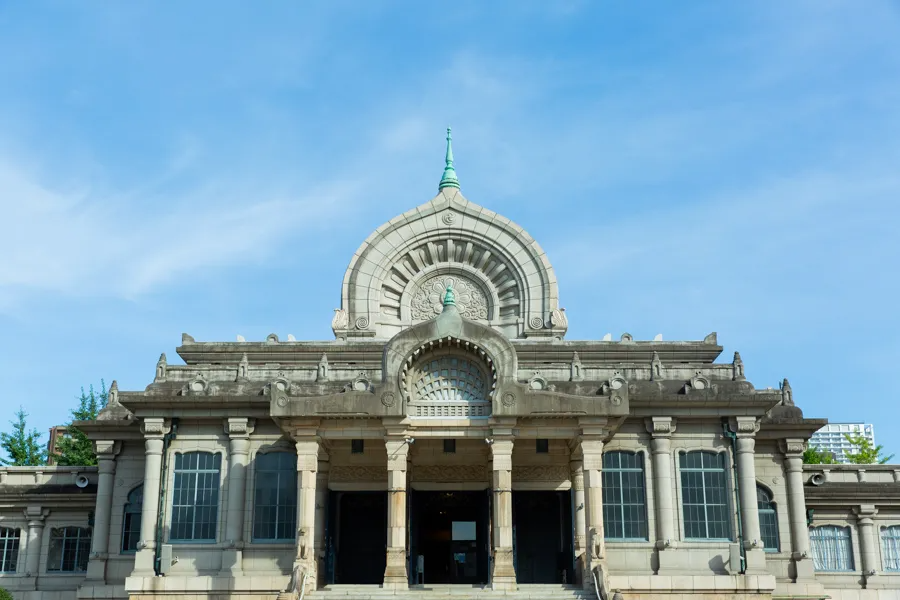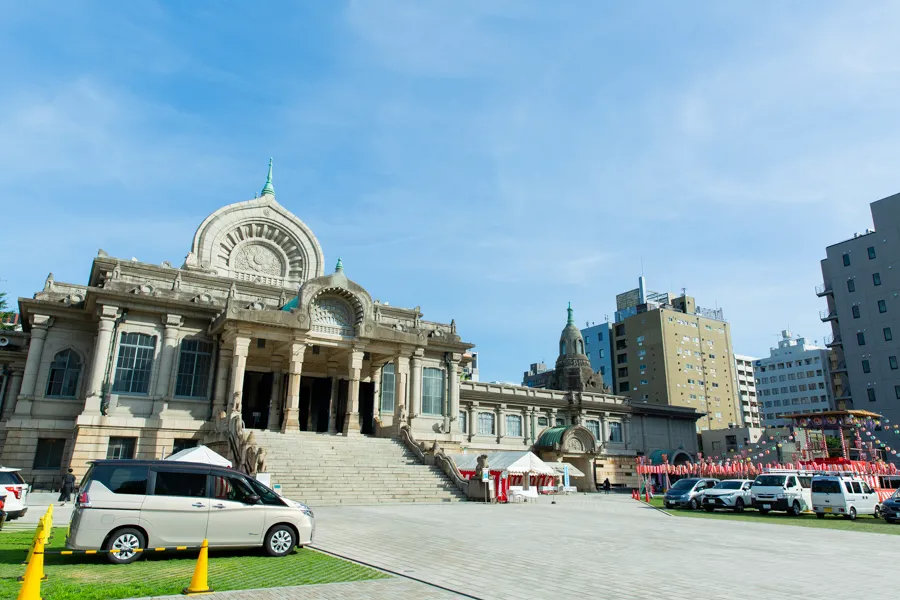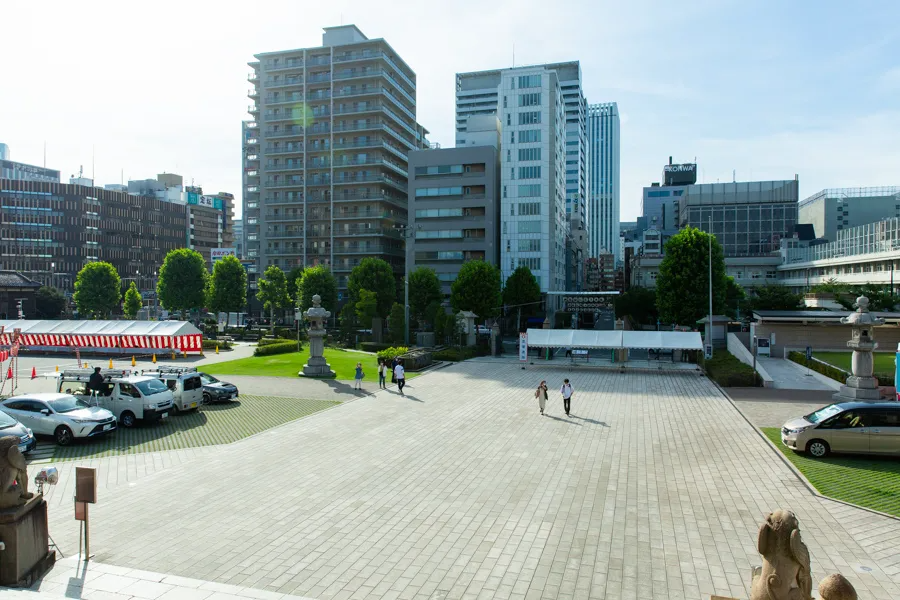Scared to Change? Innovation of a Japanese Temple

More than ever, individuals and corporate organizations must change their way of working and running business to remain relevant in a constantly changing world. While most of us recognize the importance of making these adjustments, many are reluctant to alter their processes because of their innate fear of change. This reluctance is even more so in organizations regarded as the custodians of traditions that have transcended generations. “Why change something that has lasted centuries?” they ask.
It’s about survival. People and organizations that refuse to change are at grave risk of losing their relevance and going extinct. By making necessary adjustments where possible, organizations can continue to pursue their visions for much longer despite the changes in their environment.
The Tsukiji Hongwanji Temple in Chuo-ku Tokyo is an example of a traditional institution that has embraced change to get astounding results. One man, Yugen Yasunaga, has been at the center of this evolution, and we can learn a lot from him.

Representative Director and Head of the Jodo Shinshu Hongwanji sect Tsukiji Hongwanji, born in Tokyo in 1954. Graduated from Keio University, Faculty of Economics. D. in Business Administration from Cambridge University. After working at Sanwa Bank (now Bank of Mitsubishi UFJ) and Russell Reynolds, he joined Shimamoto Partners as a partner and served as the company’s president from 2006; in 2015 he was appointed head of religious affairs at Tsukiji Honganji Temple of the Jodo Shinshu Honganji sect; as representative director, he leads various Buddhist services at the top of Tsukiji Honganji Temple and Hongwanji and oversees the overall business management of the temple, as well as working on various missionary and missionary projects in the metropolitan area.
A Challenge Accepted
Even though Yasunaga trained and qualified to be a monk, he never intended to become one. However, when he agreed to help out a senior colleague whose family owned a temple, he set foot on a path that would inevitably lead to becoming just that.
From his role as deputy chief priest at that temple, he established and nurtured his connection with the Buddhist community, delivering speeches at various meetings, during which his background in business stood out. He would later become an executive committee member of the Jodo Shinshu Hongwanji School.
From his position as trustee, which is also an external director of the temple, Yasunaga observed some harmful practices he couldn’t overlook in the temple. “If you keep doing this, you’ll go out of business!” he told the authorities over and over. “If you’re going to talk so much, then go in and do it!” was the response he got.
He duly accepted the challenge.
From Closed Temple to a Refreshing, New Look
The results speak for themselves. Yasunaga’s reform project has brought extensive transformations to practically all aspects of the institution, including its physical appearance.
By cutting down the big trees planted in the precincts in front of the main building, making it possible to see the main building from the outside, and establishing an information center with a cafe and shop, a joint grave and a new free car park for visiting vehicle, Yasunaga has created an open, inviting atmosphere around the temple.
He said: “Yes, we wanted to create a place where people would love to enter. To foster a sense of unity, we had a specialist designer create the temple’s logo and corporate colors. We also created a contact center where people can easily ask questions about Buddhist matters and a cultural center called the Tsukiji Hongwanji GINZA Salon as a satellite temple.
“As part of our DX strategy, we have implemented online Buddhist memorial services, released the Tsukiji Hongwanji App, and reduced the size of our monthly newsletter, Tsukiji Hongwanji Shinpo, to make it easier for people to pick it up. We rebranded in various areas,” he added.

How do You Manage Obstacles in the Change Process?
Making these changes hasn’t been a mean feat. The biggest problem, according to Yasunaga, was the absence of a balance sheet and customer data. While this lack was typical of the temple community focused on Buddhist teachings and sutras, it was an impractical situation for Yasunaga, who couldn’t see a pathway to survival “just by responding to the needs of existing clients.”
Essentially, one of Yasunaga’s earliest tasks was to awaken the temple community to the business side of their devotion. And that, unsurprisingly, met with some resistance.

Yasunaga recalls many saying, “What you are doing is wrong. A temple is not a business”. Although he agrees that the work of a temple is to evangelize, proselytize and preach sutras, he thinks there should be better ways of sharing the devotion with the public to ensure that the community can thrive.
As he set out to implement changes in the temple’s processes, Yasunaga understood the importance of acknowledging people’s feelings for the traditions he wanted to set aside.
“So, we find a common direction with them and respect their underlying feelings. Never clash. Respect the feelings but change the way you do things. That’s my way of thinking,” he added.
As some reforms led to increased visitors and, by extension, increased revenue, more people realized their expedience and yielded to the process.

How do You Stay Anchored During Change?
Given the emphasis placed on change so far, one may think implementing change is about throwing everything that existed out to make room for the new. For Yasunaga, that might be counterproductive. He says staying true to the organization’s core values is fundamental to real and impactful change.
Speaking about their anchor through the change process at the temple, he says, “The foundation of a temple is Buddhist teachings, and this will never change. We need to ask ourselves how these roots are connected to the work we are given to do, and whether we are adding value through our day-to-day work.”
In keeping to the tenets of the institution, every stakeholder can find true meaning in their contributions to the process of actualizing the shared vision and stay committed to the cause.
The Importance of Disagreement

While disagreements can seem detrimental to organizational growth, they can often catalyse the change an organization desperately needs.
“Sometimes you may need to fight your boss,” Yasunaga says, underscoring the need for anyone with an idea to propel an organization towards actualising its goals to speak up even if the boss might disagree.
“If you think, ‘I want to do this to improve the company,’ then you need to analyze it properly, put your thoughts together, and submit them to your boss. In Japanese companies, even ordinary employees have the right to make suggestions.
“At Tsukiji Hongwanji Temple, I also aim to create an open workplace where anyone can express their opinions as easily as possible. Sometimes an out-of-the-box idea from a young person is actually a very good idea,” he added.

Interviewed: July, 2022
Production Cooperation: Shigeki Nishimura + Note,Ltd
Photo Credit: Makoto Tochikubo







